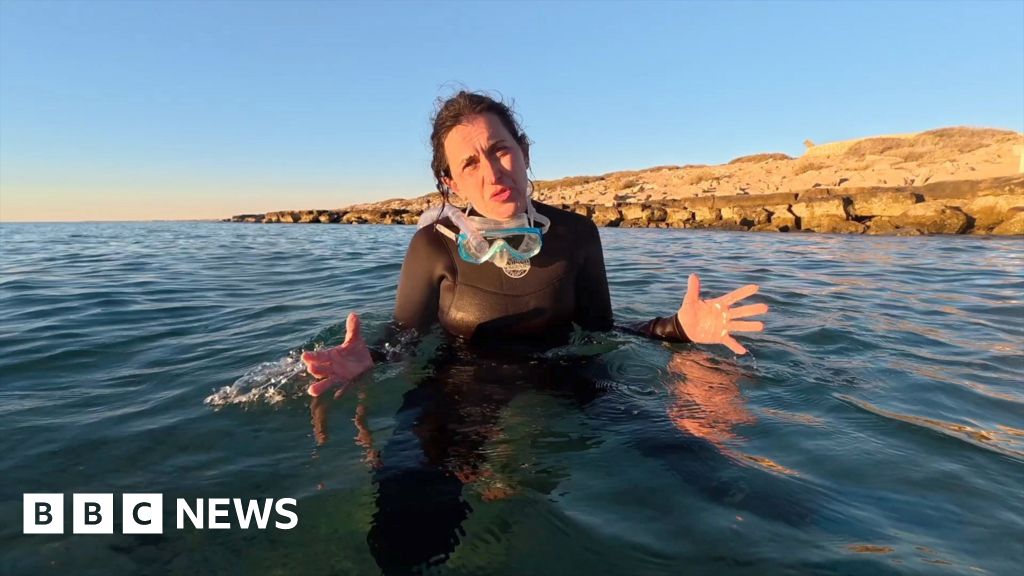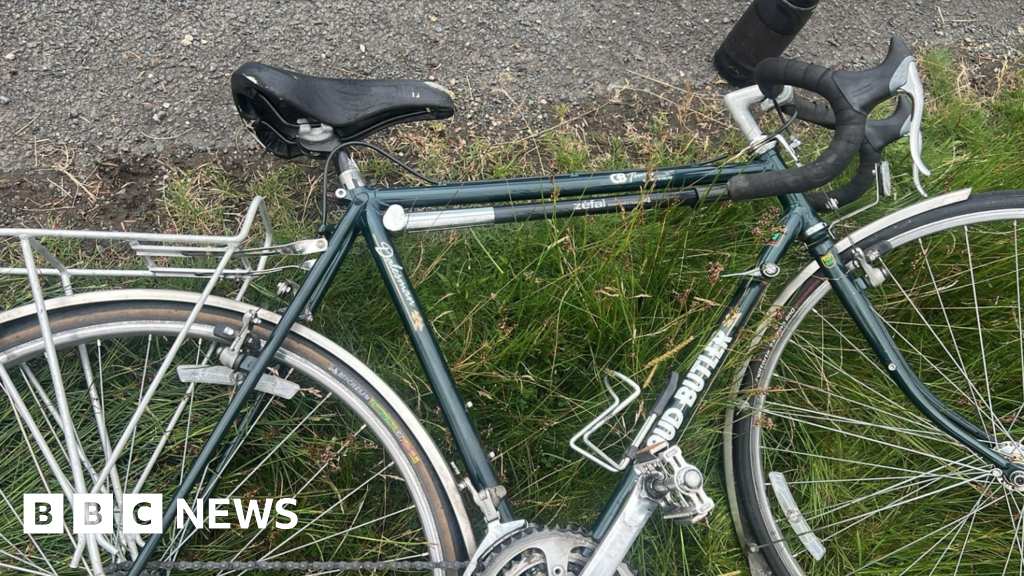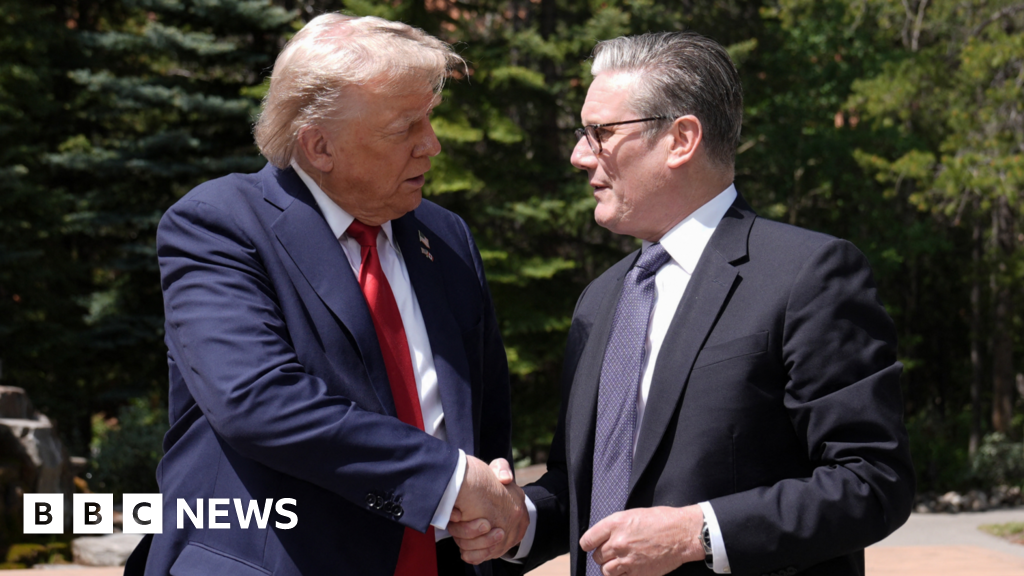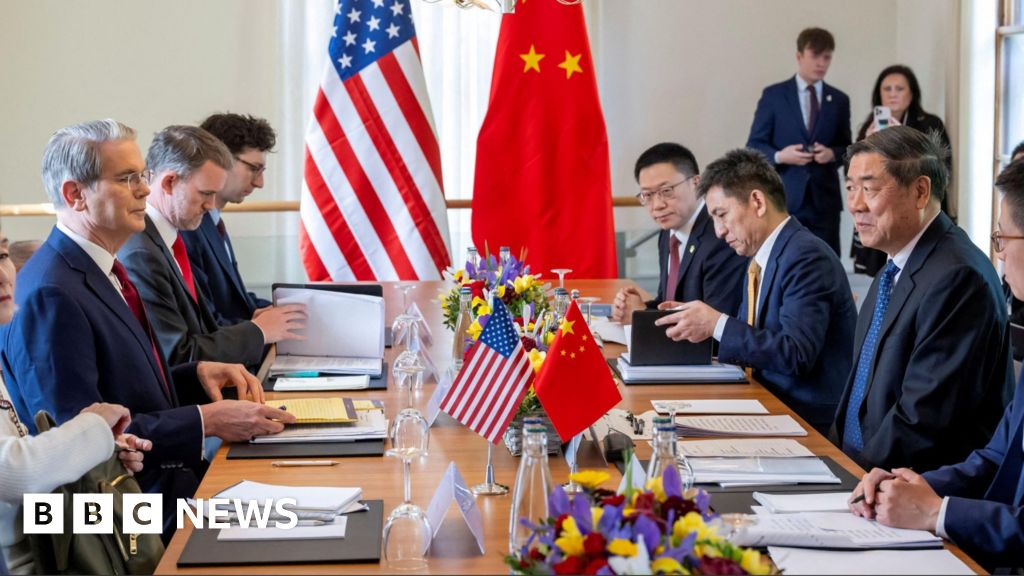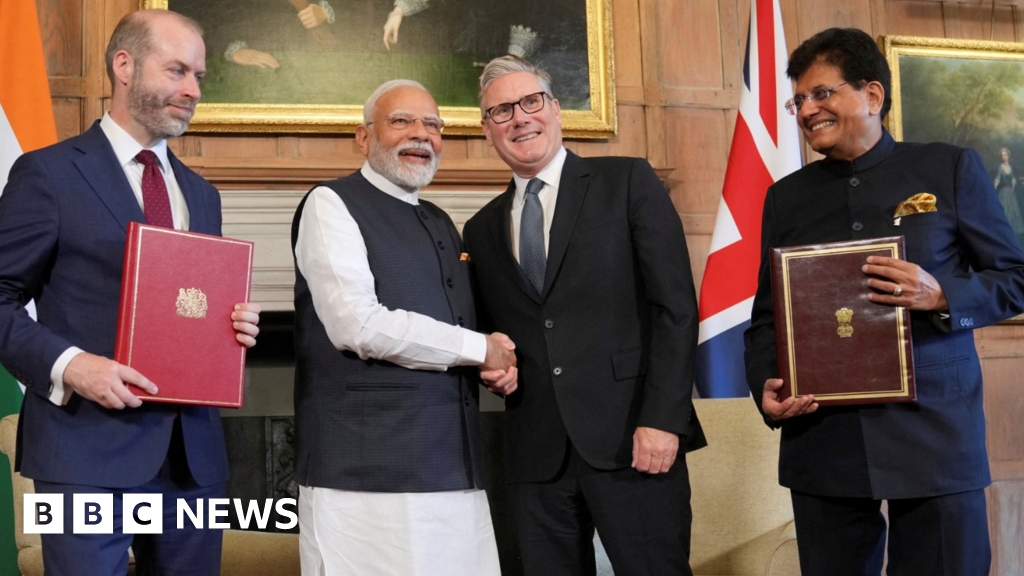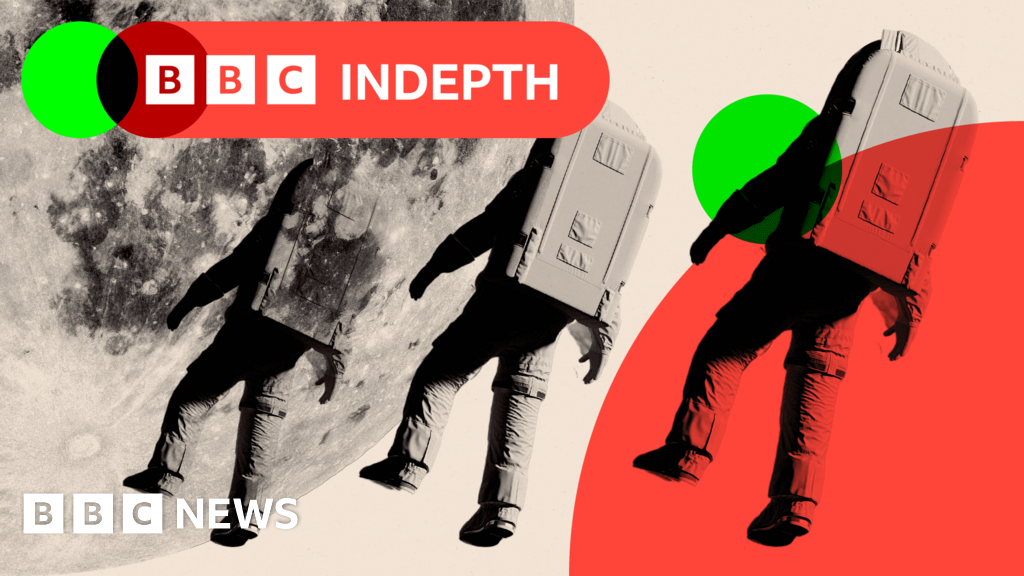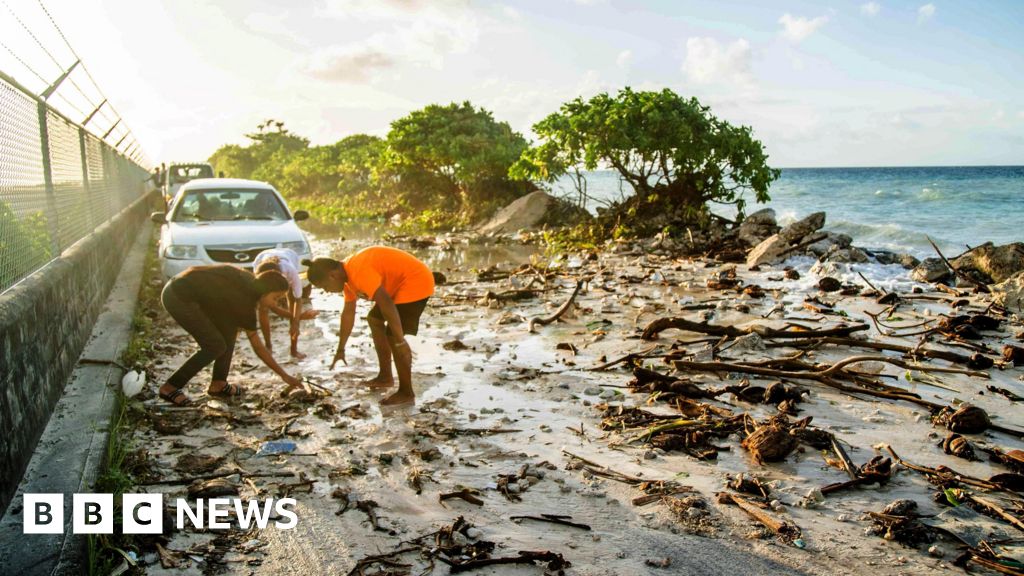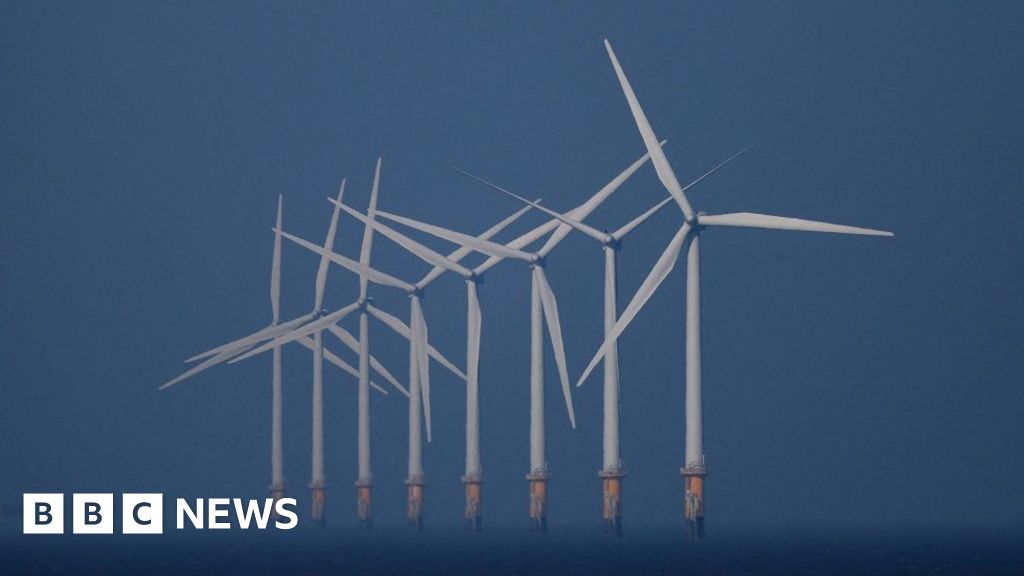
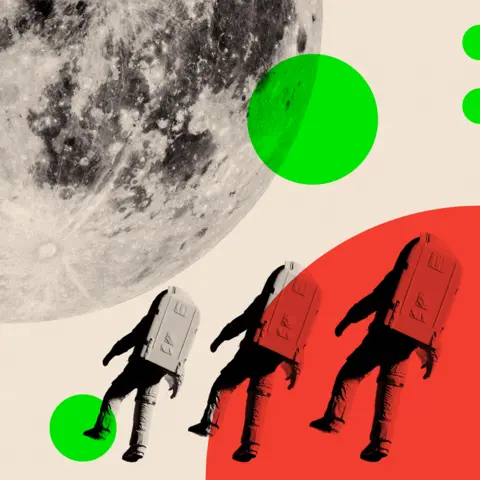 Getty Images
Getty ImagesWe’re in the midst of a Moon rush. A growing number of countries and companies have the lunar surface in their sights in a race for resources and space dominance. So are we ready for this new era of lunar exploration?
This week, images were beamed back to Earth of China’s flag unfurled on the Moon. It’s the country’s fourth landing there – and the first ever mission to return samples from the Moon’s far side. In the past 12 months, India and Japan have also set down spacecraft on the lunar surface. In February, US firm Intuitive Machines became the first private company to put a lander on the Moon, and there are plenty more set to follow.
Meanwhile, Nasa wants to send humans back to the Moon, with its Artemis astronauts aiming for a 2026 landing. China says it will send humans to the Moon by 2030. And instead of fleeting visits, the plan is to build permanent bases.
But in an age of renewed great-power politics, this new space race could lead to tensions on Earth being exported to the lunar surface.
“Our relationship with the Moon is going to fundamentally change very soon,” warns Justin Holcomb, a geologist from the University of Kansas. The rapidity of space exploration is now “outpacing our laws”, he says.
A UN agreement from 1967 says no nation can own the Moon. Instead, the fantastically named Outer Space Treaty says it belongs to everyone, and that any exploration has to be carried out for the benefit of all humankind and in the interests of all nations.
While it sounds very peaceful and collaborative – and it is – the driving force behind the Outer Space Treaty wasn’t cooperation, but the politics of the Cold War.
As tensions grew between the US and Soviet Union after World War Two, the fear was that space could become a military battleground, so the key part of the treaty was that no nuclear weapons could be sent into space. More than 100 nations signed up.
But this new space age looks different to the one back then.
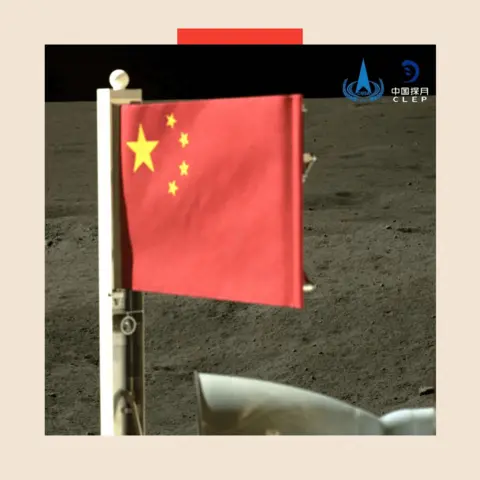 Getty Images
Getty ImagesOne major change is that modern-day Moon missions are not just the projects of nations – companies are competing, too.
In January, a US commercial mission called Peregrine announced it was taking human ashes, DNA samples and a sports drink, complete with branding, to the Moon. A fuel leak meant it never made it there, but it sparked debate about how delivering this eclectic inventory fitted in with the treaty’s principle that exploration should benefit all humanity.
“We’re starting to just send stuff up there just because we can. There’s no sort of rhyme or reason anymore,” says Michelle Hanlon, a space lawyer and founder of For All Moonkind, an organisation that seeks to protect the Apollo landing sites. “Our Moon is within reach and now we’re starting to abuse it,” she says.
But even if lunar private enterprise is on the increase, nation states still ultimately remain the key players in all this. Sa’id Mostehsar, director of the London Institute of Space Policy and Law, says any company needs to be authorised to go into space by a state, which will be limited by the international treaties.
There’s still a great deal of prestige to be had by joining the elite club of Moon landers. After their successful missions, India and Japan could very much claim to be global space players.
And a nation with a successful space industry can bring a big boost to the economy through jobs, innovation.
But the Moon race offers an even bigger prize: its resources.
While the lunar terrain looks rather barren, it contains minerals, including rare earths, metals like iron and titanium – and helium too, which is used in everything from superconductors to medical equipment.
Estimates for the value of all this vary wildly, from billions to quadrillions. So it’s easy to see why some see the Moon as a place to make lots of money. However, it’s also important to note that this would be a very long-term investment – and the tech needed to extract and return these lunar resources is a some way off.
In 1979, an international treaty declared that no state or organisation could claim to own the resources there. But it wasn’t popular – only 17 countries are party to it, and this does not include any countries who’ve been to the Moon, including the US.
In fact, the US passed a law in 2015 allowing its citizens and industries to extract, use and sell any space material.
“This caused tremendous consternation amongst the international community,” Michelle Hanlon told me. “But slowly, others followed suit with similar national laws.” These included Luxembourg, the UAE, Japan and India.
The resource that could be most in demand is a surprising one: water.
“When the first Moon rocks brought back by the Apollo astronauts were analysed, they were thought to be completely dry,” explains Sara Russell, professor of planetary sciences at the Natural History Museum.
“But then a kind of revolution happened about 10 years ago, and we found out that they’ve got little traces of water in them trapped in phosphate crystals.”
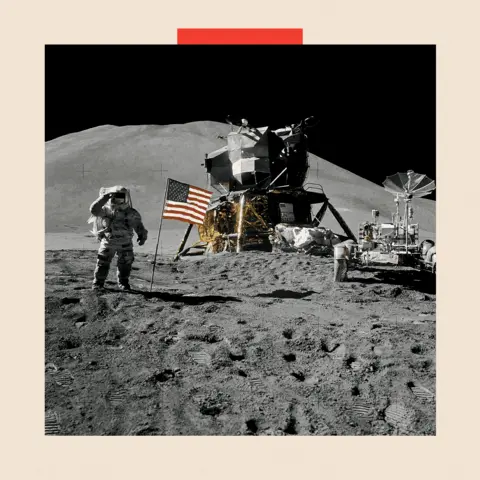 Reuters
ReutersAnd at the Moon’s poles, she says, there’s even more – reserves of water ice are frozen inside permanently shadowed craters.
Future visitors could use the water for drinking, it could be used to generate oxygen and astronauts could even use it to make rocket fuel, by splitting it into hydrogen and oxygen, allowing them to travel from the Moon to Mars and beyond.
The US is now attempting to establish a new set of guiding principles around lunar exploration – and lunar exploitation. The so-called Artemis Accords state that extracting and using resources on the Moon should be done in a way complies with the Treaty for Outer Space, although it says some new rules might be needed.
More than 40 countries have so far signed up to these non-binding agreements, but China is notably absent from the list. And some argue that new rules for lunar exploration shouldn’t be led by an individual nation.
“This really ought to be done through the United Nations because it affects all countries,” Sa’id Moshetar tells me.
But access to resources could also cause another clash.
While there’s plenty of room on the Moon, areas close to ice-filled craters are the prime lunar real estate. So what happens if everyone wants the same spot for their future base? And once a country has set one up, what’s to stop another nation establishing their base a bit too close?
“I think there’s an interesting analogy to the Antarctic,” says Jill Stuart, a space policy and law researcher at the London School of Economics. “We’ll probably see research bases being set up on the Moon like they are on the continent.”
But specific decisions about a new lunar base, for example whether it covers a few square kilometres or a few hundred, may come down to whoever gets there first.
“There will definitely be a first-mover advantage,” Jill Stuart says.
“So if you can get there first and set up camp, then you can work out the size of your zone of exclusion. It doesn’t mean you own that land, but you can sit on that space.”
Right now, the first settlers are most likely to be either the US or China, bringing a new layer of rivalry to an already tense relationship. And they are likely to set the standard – the rules established by whoever gets there first may end up being the rules that stick over time.
If this all sounds a bit ad hoc, some of the space experts I’ve spoken to think we’re unlikely to see another major international space treaty. The dos and don’ts of lunar exploration are more likely to be figured out with memorandums of understanding or new codes of conduct.
There’s a lot at stake. The Moon is our constant companion, as we watch it wax and wane through its various phases as it glows bright in the sky.
But as this new space race gets under way, we need to start thinking about what sort of place we want it to be – and whether it risks becoming a setting where very Earthly rivalries are played out.
BBC InDepth is the new home on the website and app for the best analysis and expertise from our top journalists. Under a distinctive new brand, we’ll bring you fresh perspectives that challenge assumptions, and deep reporting on the biggest issues to help you make sense of a complex world. And we’ll be showcasing thought-provoking content from across BBC Sounds and iPlayer too. We’re starting small but thinking big, and we want to know what you think – you can send us your feedback by clicking on the button below.




